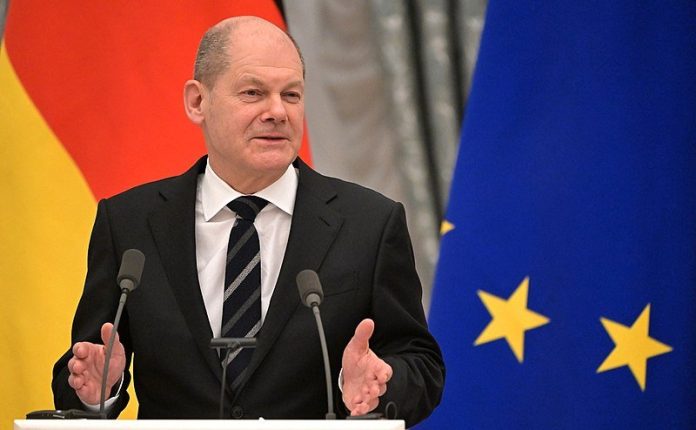Officials warned that Germany’s opposition to a proposed revision of the EU’s military support fund risked delaying arms deliveries to Ukraine, according to The Financial Times.
A €12-billion fund dubbed the European Peace Facility (EPF), established beyond the EU’s general budget and based on contributions from member states according to their economies, has been depleted after EU member states were reimbursed €5.6 billion for weapons sent to Kyiv in almost two years after the war in Ukraine broke out.
However, a scheduled €5bn replenishment of the EPF is being postponed, as countries argue over ways to reform the fund to better fit Ukraine’s needs and help the European arms industry meet them. An EU official involved in the talks stated:
“Brussels says, ‘pay first, get refunded later.’ But Germany and other countries favouring a pivot away from the reimbursement model are arguing they shouldn’t need to.”
Last week, EU leaders overcame Hungary’s objections and agreed to contribute 50 billion euros over four years to bolster Ukraine’s collapsing budget and economy. At the same time, however, the US, Ukraine’s largest arms donor since 2022, has yet to get congressional approval for new military and economic aid to Kyiv, largely due to problems at the US-Mexico border.
With aid long arriving in reduced quantities, Ukrainian forces have begun rationing their weapons in what the NATO secretary general has called a “battle for ammunition.” Brussels admitted last week that it would not honour a pledge to send Kyiv 1 million artillery shells by March.
Moreover, Berlin is facing severe financial constraints after the Constitutional Court ruled against its budget measures. The court requires that the value of the weapons it supplies Kyiv bilaterally should be factored into its share of the fund.
They don’t want to say yes to the money or no without being certain that the [terms] are in line with what is acceptable for them.
German Chancellor Olaf Scholz insisted that the agreement on the proposed EPF reform must include “suggestions” drawn up by member states.
“We did not even talk about the issue of the European Peace Facility. That was also not the intention to talk about this in more detail.”
Josep Borrell, the EU’s top diplomat overseeing the EPF, stated last week that he would “call on [the leaders] to reach an agreement as soon as possible because there is no more time.”
In the next month we have to increase our military support to Ukraine… I don’t think we have the sense of urgency when we deal with that.
Major contributors to the fund claim that smaller countries, such as the Baltic states, received large reimbursements from the EPF for sending obsolete Soviet-era weapons to Ukraine and used the money to modernise their own armaments. Those countries argued that Ukrainian forces needed Soviet-era equipment at the start of the war as they already knew how to use those weapons.
Countries with large arms industries, such as Germany and France, are pushing for early change and “will be the biggest beneficiaries.” One official stated that the current model is believed to be in place at least through 2024, with co-production funding to be expanded next year.
